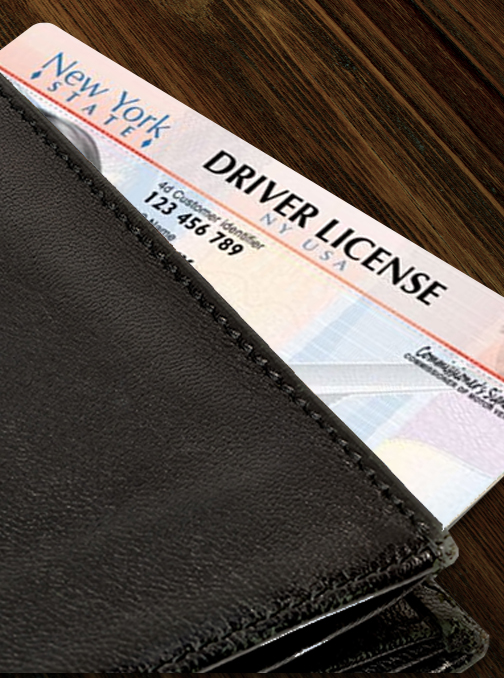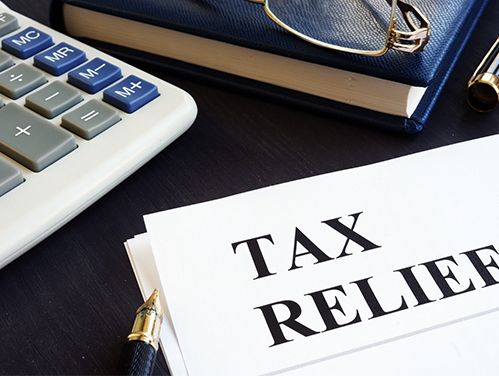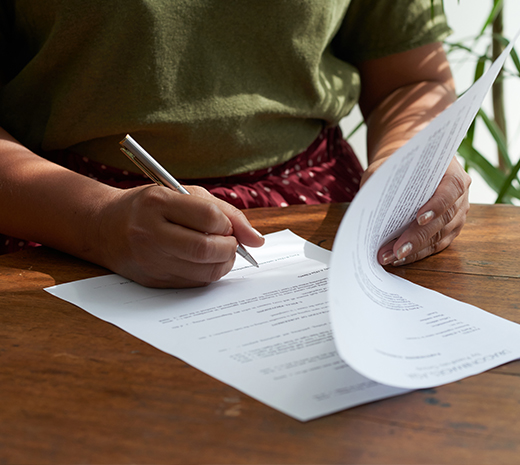
Tax Controversy
NYS Tax Matters
Understanding Your Rights with New York State Department of Taxation and Finance (“NYS DTF”)
Receiving a letter from NYS DTF can be concerning for taxpayers. It is important to not ignore these letters as deadlines can be missed, and penalties and interest may continue to accrue.
There are several options available to taxpayers to resolve their liabilities with NYS DTF. If disputing the underlying matter, taxpayers have access to fully utilize their rights and remedies to do so.
Our firm regularly represents taxpayers before the department, so feel free to reach out to discuss your tax issues.
Conciliation Conferences
If you are in the midst of an audit and do not agree with the auditor’s results, you may file for a hearing before the Bureau of Conciliation and Mediation Services (“BCMS”). While BCMS is an independent entity within NYS DTF, it acts to assist in resolving tax disputes between the taxpayer and NYS DTF. A taxpayer should consider a BCMS hearing before proceeding with a petition with the Division of tax Appeals.


Driver’s License Suspension
A New York taxpayer with back taxes may face a driver’s license suspension.
The state can recommend suspension if:
- The taxpayer owes $10,000 or more in taxes, penalties, or interest.
- No collection resolution (e.g., installment agreement, income execution, or offer in compromise) is in place.
Upon identifying delinquent taxpayers, New York State sends a notice, allowing 60 days to resolve tax liabilities.
If unresolved, the Department of Motor Vehicles (DMV) notifies the taxpayer, giving 15 days to address the issue or face license suspension.
Prompt action is crucial to avoid having your license suspended. Payment or qualifying payment plans (e.g., installment agreement) can prevent suspension.
Exceptions exist on certain grounds, including commercial drivers, child support payers, and those receiving public assistance. A recent ground has been added to prevent suspension where the suspension would cause the taxpayer undue economic hardship. Taxpayers with a suspended license may obtain a restricted license which allows certain trips to and from work.
Installment Payment Agreements
Owe money to New York State in taxes and unable to pay all at once? An Installment Payment Agreement (“IPA”) may be an option for you.
With an IPA, the liability can be paid over time, noting that interest and penalties keep adding up. Consider a loan instead if you have good credit as interest rates with NYS could be considerably higher. IPAs are best for steady income earners with limited assets.
Beware: NYS may still file a warrant while you’re on an IPA but won’t seize your wages (levy) as long as you make payments.
Terms of an IPA can vary as they are dependent on your income, expenses, and the total amount owed. Contact us to see if an IPA is the right option for you.


NYS and NYC Residency Audits
Are you contemplating a move out of New York State, or do you own a vacation home or other residential property in New York State, but consider your primary residence to be elsewhere? You may be at risk for a residency audit from NYS DTF. NYS DTF is aggressively pursing these types of individuals with invasive, time consuming, and expensive audits. These audits determine whether you correctly filed for New York tax purposes.
Why it Matters:
New York residents pay income tax on their worldwide income, regardless of source. Nonresidents only pay tax on income earned within New York State. Similarly, New York City residents face additional tax implications and are subject to audits as well.
The Residency Maze:
New York’s residency tax law is complex. Two main tests determine your residency status:
- Domicile Test: This looks at your “true home” – the place you intend to return to. Several factors are considered, and the burden of proof lies with you if you are claiming a domicile change out of New York.
- Statutory Residency Test: Even if your domicile is outside New York, you might still be considered a resident under this test. Two conditions must be met:
- You maintain a “Permanent Place of Abode” in New York for substantially all of the year which for tax years 2022 and forward equates to 10 months or more. Whether your abode qualifies as permanent place of abode requires an analysis including year-round suitability, residential interest in the abode, and whether there is unfettered access to the abode.
- You spend more than 183 days (any part of a day counts) in New York during the tax year (with limited exceptions for inpatient medical care and travel through the state).
If contemplating a move out of NYS or if you are a nonresident considering a purchase or lease of a residence in NYS or NYC, reach out to discuss the tax implications and plan accordingly. If you have received audit correspondence from NYS DTF, feel free to contact us – we can help!
NYS Individual and Business Tax Audits
Navigating Tax Audits in New York State
Tax audits can occur for various reasons, with varying levels of seriousness. Sometimes discrepancies arise between the New York State system and reported items on taxpayers’ returns.
Our firm understands the stress of audits and represents individuals and businesses across all tax types (income tax, sales tax, withholding tax, etc.).
We work efficiently to address auditor concerns and reach timely resolutions. Contact us to discuss your NYS audit concerns.


NYS Offer in Compromise
An Offer in Compromise (“OIC”) is a binding agreement where New York State accepts less than the full amount of tax, interest, and penalties owed.
The law permits the State to assess the taxpayer’s economic circumstances and reasonable collection potential based on sufficient proof by the taxpayer.
Given the reduced settlement, the OIC process is meticulous and often requires extensive documentation.
Call us to discuss whether an OIC is the right course of action for you.
Responsible Person Assessments
Individuals associated with a New York State business may be held personally accountable for the company’s unpaid tax debts. A “responsible person assessment” allows the State to target the individual’s personal assets to collect the business’s tax liability.
Withholding Tax
New York State can pursue individuals to collect a business’s unpaid withholding tax if:
- The person had a duty to collect the tax.
- The person willfully failed to perform this duty.
The unpaid tax becomes a penalty assessed against the individual, and it is not dischargeable in personal bankruptcy.
Responsible persons are personally liable for 100% of the unpaid withholding tax, regardless of their ownership percentage. However, they are not liable for any penalties assessed against the company regarding the unpaid withholding tax.
Sales Tax
New York State can pursue individuals to collect a business’s unpaid sales tax if:
- The person had a duty to collect the tax.
Taxpayers assessed as responsible persons are personally liable for 100% of the unpaid sales tax, regardless of their individual ownership percentage. This liability is not dischargeable in personal bankruptcy.
If assessed in a timely manner, individual taxpayers are liable for tax, interest, and penalties equivalent to those assessed against the company.
Note that there is an exception for qualified LLC members. For more details, refer to “Responsible Person Assessments Against Members of NY LLC for Sales Tax”.


Responsible Person Assessments against Members of NY LLC for Sales Tax
Did you know that as a member of a New York LLC, you could be personally liable for the company’s unpaid sales tax, even if you weren’t involved in day-to-day operations? Ouch!
Here’s the deal: By default, all LLC members are 100% responsible for the LLC’s sales tax bill, including penalties and interest. This can be a nasty surprise!
There is some relief, however. New York offers an exception for qualified LLC members who:
- Their ownership interest and percentage share of the profits and losses of the LLC are less than 50%, and
- They were not under a duty to act on behalf of the company in complying with the sales tax law.
If you meet these conditions and get approved for relief, your personal liability is capped at your ownership stake or share of profits, whichever is higher. Plus, you’re off the hook for penalties!
There’s a catch: to qualify, you’ll need to cooperate with the State by identifying those involved in the day-to- day operations of the business, within reason of course, as passive investors might not have all the details.
Facing a sales tax nightmare? We can help! We’ll challenge the State’s claims for responsible person assessments and fight to minimize your tax burden.
Restaurant Sales Tax Audits
Operating a restaurant is tough. Between slim margins and tight cash flow, it is easy to put tax payments on the back burner. But beware! New York State takes restaurant sales tax seriously, and non-payment can be a recipe for disaster.
Here’s why:
- Steep Penalties: Miss a tax payment and face penalties and interest up to 14.5%!
- Lost Licenses & Shutdowns: Non-compliance can lead to revoked licenses and even business closures.
- Personal Liability: Owners and managers can be held personally responsible for unpaid taxes.
- Aggressive Collections: Warrants, levies, and asset seizures are all on the table.
There is hope, however! New York offers a Voluntary Disclosure and Compliance Program. If you haven’t paid your sales tax, you may be eligible to:
- Avoid Penalties & Criminal Charges: Come clean and the State won’t penalize you or pursue criminal charges.
- Limited Look-Back Period: This program might limit how far back the State can look for unpaid taxes.
Don’t wait until it’s too late! We can help you navigate your tax issues and explore all your options, including the Voluntary Disclosure Program. Let’s save your restaurant from a tax-related meltdown!


Sales and Use Tax/Audits
New York Sales Tax: Keep Good Records, Avoid Headaches!
Running a business in New York? Sales tax is a fact of life. It applies to most tangible personal property sales, and if you collect it, you’re responsible for keeping good records and remitting it to the State on time.
Record Keeping is Key:
- Document Everything: Track all sales and purchases to avoid issues down the road.
- The State Can Estimate Your Taxes: Without proper records, New York can use your credit card receipts or other information to estimate what you owe, and it probably won’t be in your favor.
Penalties for Poor Records:
- Fines: Sloppy records can lead to penalties on top of any taxes owed.
- Criminal Charges: Willfully neglecting records can even result in criminal trouble.
- Lost Business License: The state can revoke your ability to operate if you’re not compliant.
- High Interest Rates: Ticking clock! New York charges hefty interest on overdue sales tax.
Personal Liability:
- Owners Beware: In some cases, business owners can be held personally responsible for unpaid sales tax, including using their own assets to pay the debt. There are exceptions, though (see Responsible Person Assessments Against Members of NY LLC for Sales Tax).
We Can Help! Facing a New York sales tax audit? We’ll assist you. Our team will work to reach a fair and efficient resolution with the State, minimizing any tax burden or penalties you may face.
Voluntary Disclosures
Haven’t filed your NYS tax returns for one or more years, have errors in previously filed returns or federal changes which affect your NYS tax return? We can help! The NYS Voluntary Disclosure and Compliance program is available for qualified taxpayers who have not yet been contacted by the State with respect to the tax type and period being disclosed if the State has not already started an investigation in the matter.
- Most tax types are eligible.
- If accepted, taxpayers must file and pay taxes and interest for all relevant periods, with all penalties waived.
- Additional benefits include a three- or six-year limited look-back period and protection from criminal referral.
- Voluntary disclosure has associated risks and may not be suitable for all taxpayers.


Warrants, Levies, and Seizures
For New York State to have legal authority to pursue collection against the taxpayer’s real and personal property on an unpaid tax, the State must first file a tax warrant.
New York takes unpaid taxes seriously, and if you owe money, the State has ways to collect. Here’s how it works:
- Tax Warrant: This gives the state legal muscle to go after your assets. It stays on file until the debt is paid or expires.
- Public Record: A tax warrant can adversely affect your credit rating and ability to conduct business.
Collections Nightmare:
- Long Reach: New York has 20 years to collect, starting from the day they could have filed the warrant.
- Surprise Levies: The State can seize funds from your bank account without warning.
- Wage Garnishments: Known as an income execution, expect up to 10 percent of your paycheck to be diverted until the liability is paid (note that retirement accounts are safe).
- Property Seizures: In extreme cases, the State can take your car, furniture, or even your business inventory to sell at auction. It may even padlock your business!
We Can Help:
Facing a tax warrant or collection action can be scary. We can guide you through your rights and options, helping you navigate this stressful situation. Don’t wait, contact us today!


